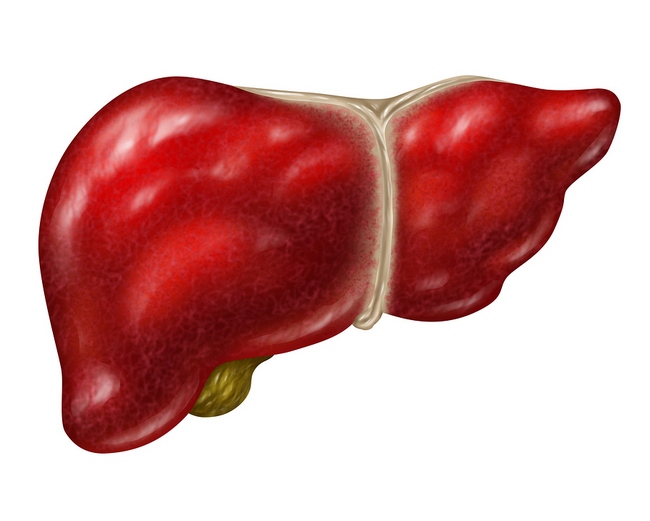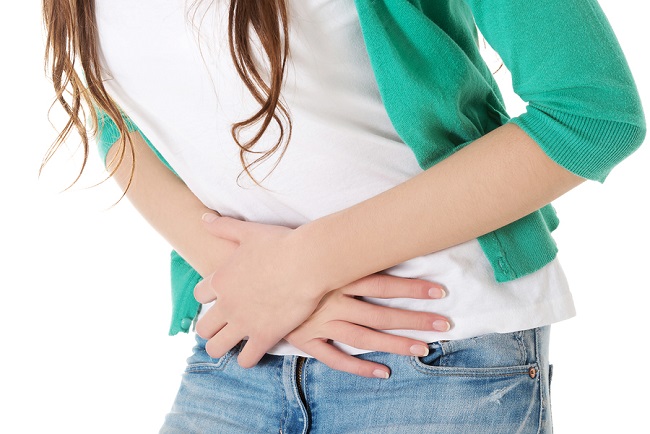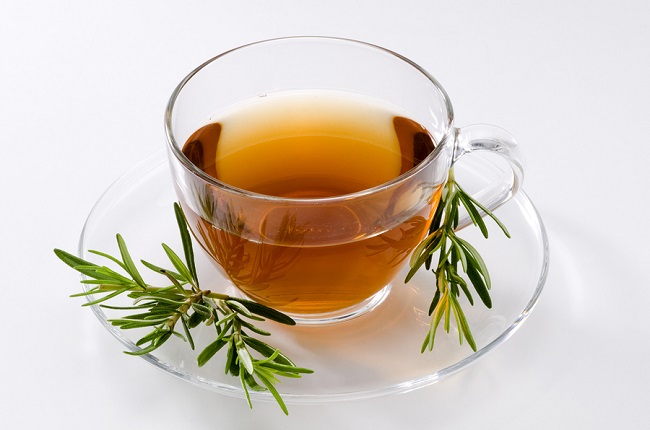- Make It Yourself Lavender Heart-Shaped Bath Bombs!
- 20 Things You Never Knew About “Down There”
- 12 Best Foods For Those Suffering From Arthritis Pain
- 12 Personal Hygiene Mistakes Almost Everyone Makes (Mom Never Told You About #4!)
- 15 Medicinal Plants And Herbs From The Cherokee People
- 12 Mind-Blowing Benefits Of Drinking Coconut Water During Pregnancy
- 12 Outstanding Winter Foods That Won’t Fatten You Up Like A Christmas Turkey
How to Naturally Strengthen the Liver and Avoid Deadly Liver Damage

Photo credit: bigstock.com
Next to your skin, your liver is the second largest organ in the body. Located in the upper right portion of your torso, it is directly under the rib bones. This organ is vital for life itself, making enzymes and bile, which digest fats and keeps the digestion process going and cleansing impurities from the body. Your liver is also responsible for regulating hormonal activity, and builds protein. Every single thing you put in your mouth must be processed by the liver before it can be used anywhere else in the body. When you think of it that way, you will quickly realize how the health of your body is directly related to how healthy your liver is.
Although your liver has the wonderful ability to repair and replace damaged cells, this is only true up to a point. Your liver can reach the point of no return, where so many cells have been damaged that the liver is unable to replace them in sufficient quantity. It is at this point that most people become aware of a problem, but it is too late. Nothing can be done after this except for a transplant, and even assuming that you are a qualified candidate, this is no easy task. It’s not as if you can go down and pick one up at the drugstore and do it yourself in the bathroom.
Problems with the liver generally occur gradually, over a period of many years. There is another type of liver failure, called acute liver failure, which is a rare condition that kills within about 48 hours and is almost impossible to detect.
The most common, and obvious, problem is excessive alcohol consumption over a long period of time. Other causes include:
- Exposure to dangerous chemicals
- A result of certain medications
- Viruses, including hepatitis
- Severe malnutrition
- Fatty liver (often caused by obesity)
- Cancer
- Diabetes
- Inherited problems with copper and iron metabolism
- Overuse of medications, both recreational and prescription, including over consumption of acetaminophen (Tylenol)
- Smoking
- Excessive intake of vitamin A
- Chemotherapy drugs
- Poisonous mushrooms
In the early stages, the liver can become inflamed, but this can be corrected. If left uncorrected, the liver begins to develop scars. Even this is reversible if lifestyle changes are taken immediately.
Continue to Page 2

Photo credit: bigstock.com
Once the liver begins to fail, certain symptoms appear including:
- Loss of appetite
- Persistent diarrhea
- Fatigue
- Bleeding easily
- Abdominal pain
- Blood in the stool
- Itchy skin or flaky rash due to bile salts being deposited in the skin
- Dark yellow urine (some mistake this for dehydration, but with liver failure the urine continues to remain dark despite drinking sufficient fluids)
- Nausea and/or vomiting
- Weight loss
- Easy bruising, even severe bruising from minor incidence
As the liver continues to break down, the symptoms become more serious:
- Jaundice (yellowing of the skin and eyes)
- Sleepiness
- Obvious swelling of the abdomen and/or legs
- Mental disorientation (hepatic encephalopathy)
- Kidney failure
- Coma
Liver failure is a life threatening problem. If you believe you might be experiencing liver failure, see your doctor immediately to rule this out or to receive treatment.
Continue to Page 3

Photo credit: bigstock.com
With a few lifestyle changes and herbal treatments, however, you can strengthen and help your liver reverse any damage.
- Herbal Teas – There are a large number of herbal teas you can drink to help your liver regenerate itself. Green tea is especially helpful.
- Water – Exchange sodas and coffee for plenty of water, especially water with some lemon juice. Lemon stimulates the secretion of bile,
- Limit Alcohol – The longer you drink, and the more you drink, the more damage you are doing to your liver. Before you reach that point of no return, do your liver favor and stop drinking, or cut back to no more than 1 drink a day for women and two for men.
- Limit Caffeine – Caffeine leaves toxic deposits on your liver. Have no more than two cups of coffee each day.
- Stop Smoking – It’s difficult, true, but well worth the effort.
- Eat More Berries – All types of berries, blueberries, strawberries, raspberries, blackberries, all contain organic acids that lower sugar levels in your blood and help to burn fat, which lessens your risk of developing fatty liver disease.
- Maintain a healthy body weight.
- Avoid Fatty Foods – Avoiding fatty foods such as French fries, cakes, cookies, and potato chips, processed foods, junk foods, and fast foods. Replace them with a healthy diet filled with organic fruits and vegetables.
- Garlic – Increase your consumption of garlic. Not only is it good for the heart, it improves liver function by flushing toxins.
- Follow Instructions – Always follow the dosing instructions given on bottles of over the counter medications and prescription meds. Even herbal medications, when taken in excess, can damage the liver.
- Diabetics – If you are diabetic, monitor your blood sugar levels carefully, and watch your blood pressure. Stay in close contact with your physician and advise them if you experience anything out of the ordinary, or any of the symptoms listed above.
- Good Hygiene – Always maintain good hygiene habits to avoid viral infections, especially hepatitis, via contaminated blood, water, food, and other body fluids.
- Herbs that Cleanse – There are a multitude of herbs that help the liver to cleanse and strengthen itself including milk thistle, chicory root, licorice root, dandelion, greater celandine, yellow dock root, and more.
Your liver is absolutely essential to your survival, so it makes perfect sense that you should do whatever is necessary to keep your liver working at its absolute best. So, change those bad habits, today! It is difficult, true, but more than worth it. Your liver is counting on you!
SEE ALSO: Cleanse Your Liver with These Two Common Plants
Liver disease can be treated in its early stages. If you think you might be experiencing liver problems, or if you are experiencing any of the symptoms listed above, always consult your physician. An ounce of prevention is worth a pound of cure, someone once said, and this applies to the health of your liver as well.
References:
































